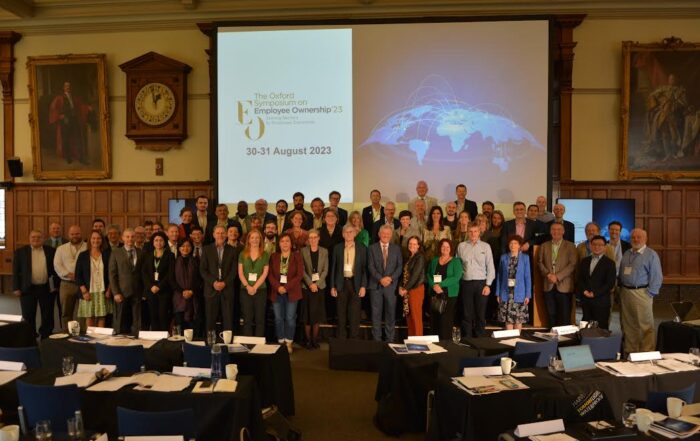The Oxford Symposium on Employee Ownership 2023
I’ve just returned after attending the Oxford Symposium on Employee Ownership and wanted to share my experiences of the event. This is the second year that the Symposium has taken place. Organised by Graeme Nuttall OBE and Professor John Hoffmire, the aim is to bring together individuals and organisations active in employee ownership from across the world to share ideas and learning. The number of nations represented was impressive: there were at least 20 countries attending including Australia, Japan, Denmark, Slovenia, Canada and the US.
It was fascinating to hear the different environments in operation. Canada has recently passed legislation to introduce a form of Employee Ownership Trust (EOT), but their model will not benefit from the same tax advantages as we do in the UK. Australia has had one company adopt the EOT, which has generated some interest, but no tax incentives, and little progress. Many countries do have wide adoption of share schemes, particularly within their larger businesses, but these are often viewed as a form of remuneration rather than as an ownership stake for employees.
Some countries do use this direct shareholding model where employees buy shares in their companies as employee ownership. The Employee Stock Option Plan (ESOP)
Personal Financial Wellness Scale™ is now available in 7 languages
The PFW Scale™ is an eight item survey, which is a reliable measurement of perceived financial distress/financial well-being. It provides the user with a score, which has been scientifically determined to be a valid and reliable measure of one’s perceived personal financial wellness, as well as measure for employees learning progress during the financial literacy programs.
A recent multinational study of the validation and measurement of The PFW Scale™ was conducted in 7 different countries and, as a result, the scale is now available in 6 different languages: Dutch, English, Italian, German, Slovenian, and Spanish.
For more information about the multinational study click here.
Photo credit: fancycrave1 from Pixabay


